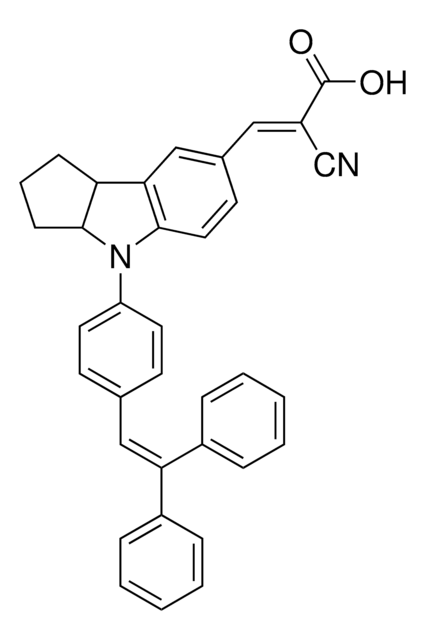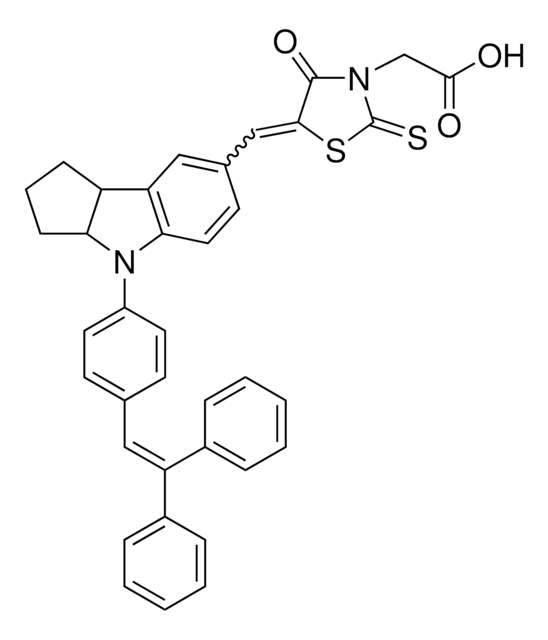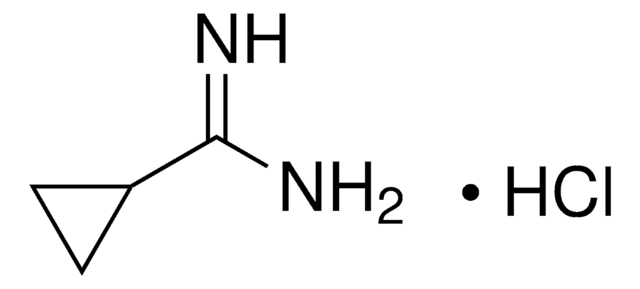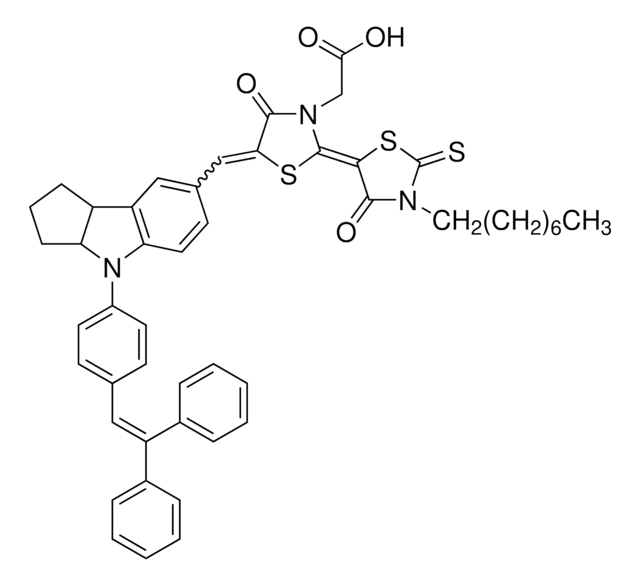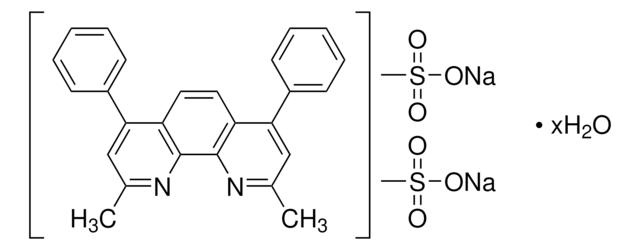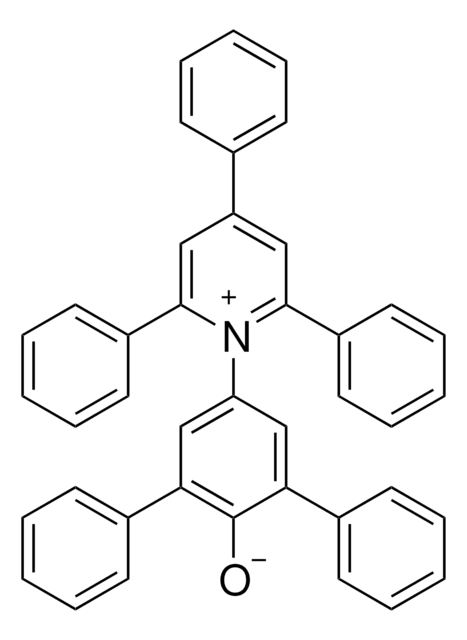736015
D149 Dye
98% (HPLC)
Synonym(s):
5-[[4-[4-(2,2-Diphenylethenyl)phenyl]-1,2,3-3a,4,8b-hexahydrocyclopent[b]indol-7-yl]methylene]-2-(3-ethyl-4-oxo-2-thioxo-5-thiazolidinylidene)-4-oxo-3-thiazolidineacetic acid, Indoline dye D149, Purple Dye
About This Item
Recommended Products
assay
98% (HPLC)
form
solid
mp
284-289 °C
λmax
531 nm
SMILES string
CCN1C(=S)SC(\C1=O)=C2\SC(=C/c3ccc4N(C5CCCC5c4c3)c6ccc(cc6)\C=C(\c7ccccc7)c8ccccc8)\C(=O)N2CC(O)=O
InChI
1S/C42H35N3O4S3/c1-2-43-40(49)38(52-42(43)50)41-44(25-37(46)47)39(48)36(51-41)24-27-18-21-35-33(23-27)31-14-9-15-34(31)45(35)30-19-16-26(17-20-30)22-32(28-10-5-3-6-11-28)29-12-7-4-8-13-29/h3-8,10-13,16-24,31,34H,2,9,14-15,25H2,1H3,(H,46,47)/b36-24-,41-38+
InChI key
OZFUEQNYOBIXTB-SJIUXOFISA-N
General description
Application
Jsc(mA/cm2) = 14.05
Fill factor − ff − 0.67
Efficiency − η − 6.67
Cell area: 0.25 cm2 (0.5 cm × 0.5 cm)
TiO2 Thickness: 5 μm
FTO glass: AGC Fabritec A11DU80
TiO2: screen printing (Catalysts & Chemicals IND. Co., Ltd.
PST−18NR/400C (4/1 mixture paste)
Electrolyte; 0.1 M LiI; 0.05 M I2; 0.6 M Dimethylpropylimidazolium
Iodide; 0.05 M t-Butylpyridine in 3-Methoxypropionitrile
Light source: AM1.5 1sun
Counter Electrode: Pt/Cr spatter glass
Dye adsorption: 30 °C/ in 3 hr. (t-BuOH/acetonitrile soln.)
Storage Class
11 - Combustible Solids
wgk_germany
WGK 3
flash_point_f
Not applicable
flash_point_c
Not applicable
Certificates of Analysis (COA)
Search for Certificates of Analysis (COA) by entering the products Lot/Batch Number. Lot and Batch Numbers can be found on a product’s label following the words ‘Lot’ or ‘Batch’.
Already Own This Product?
Find documentation for the products that you have recently purchased in the Document Library.
Customers Also Viewed
Articles
Dye-sensitized solar cells (DSCs) are 3rd generation solar cells combining the promise of high efficiency with low production costs.
While dye sensitization as the basis for color photography has been accepted for a very long time,1 attempts to use this principle for the conversion of solar light to electricity generally had resulted only in very low photocurrents, below 100 nA/cm
Our team of scientists has experience in all areas of research including Life Science, Material Science, Chemical Synthesis, Chromatography, Analytical and many others.
Contact Technical Service